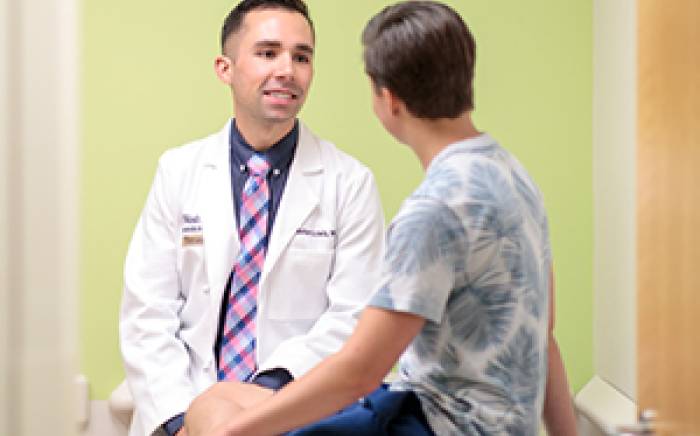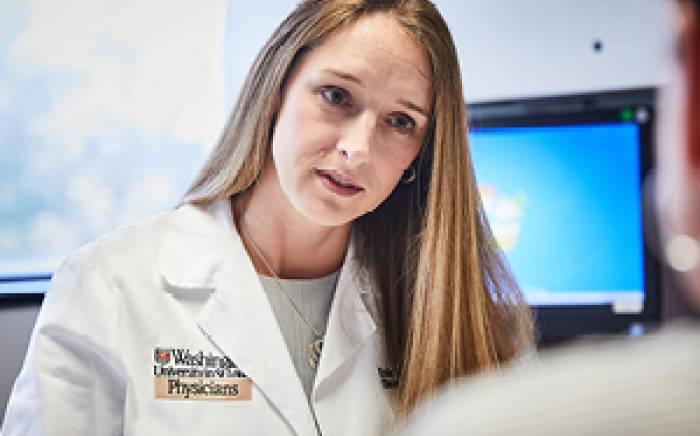You may have heard of PCOS, or polycystic ovary syndrome, before, but how do you know if your teen has it? Sarah Garwood, MD, a Washington University pediatrician at St. Louis Children’s Hospital, talks about the signs and symptoms of PCOS, and ways to treat it.
With PCOS, the ovaries make too many androgen hormones, causing the following symptoms in teens:
- Irregular or missed periods
- Excess body hair
- Weight gain around the belly
- Acne or oily skin
- Loss of hair on the head
- Skin tags on neck or armpits
- Dark or thick skin patches
The cause of PCOS is not fully understood, but there are some genetic factors because PCOS seems to run in families.
Treating PCOS focuses on treatment of the specific symptoms. Oral contraceptive pills that contain both estrogen- and progesterone-type hormones are often used to treat abnormal menstrual cycles. Acne can be treated with typical acne medications. Excess body hair can be removed through cosmetic methods like shaving or waxing. In patients who are overweight, losing weight may decrease insulin resistance and improve the PCOS symptoms.
People with PCOS may not ovulate, or release eggs from the ovaries, regularly. Small cysts in the ovaries can develop as a result. These can be seen on the ultrasound and can help make the diagnosis in adults. However, in teens, cysts on the ovaries are common and not used to make this diagnosis.
If you or your child are experiencing irregular periods, find a BJC-affiliated gynecologist or pediatrician today.


